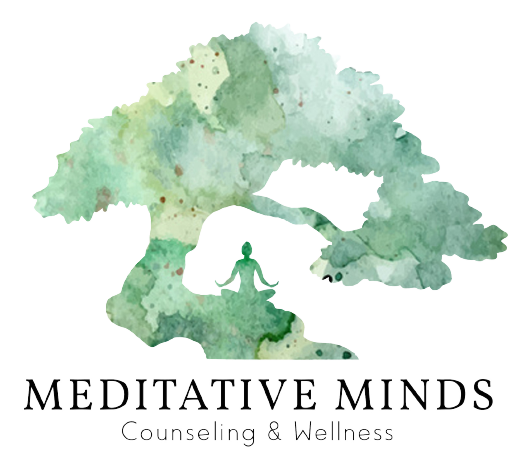In a world where mental health awareness is on the rise, the landscape of therapy has evolved into a diverse terrain, offering a myriad of approaches to healing and growth. From traditional psychotherapy to holistic alternatives, the realm of therapy encompasses a spectrum of methodologies tailored to individual needs and preferences. In this exploration of the therapeutic landscape, we embark on a journey to understand the various approaches that practitioners employ to support individuals in their quest for well-being. Whether it’s delving into the depths of the unconscious through psychoanalysis or harnessing the power of mindfulness in cognitive-behavioral therapy, each approach offers a unique lens through which to navigate life’s challenges. As we delve into the nuances of different therapeutic modalities, uncovering their underlying principles, and exploring how they can contribute to personal transformation and emotional resilience. Let’s embark together on this enlightening journey through the diverse and dynamic world of therapy.
A Journey Through Various Therapeutic Approaches

Therapy is a multifaceted journey, offering individuals paths to healing, growth, and self-discovery. With an array of therapeutic approaches available, each rooted in unique theories and methodologies, embarking on this journey can be both enlightening and transformative. In this exploration, we delve into the diverse landscape of therapy, shedding light on different approaches and their underlying principles.
- Psychoanalysis: Unveiling the Depths of the Unconscious Freudian psychoanalysis pioneered the field of therapy, emphasizing the role of the unconscious mind in shaping behavior and experiences. Through techniques such as free association and dream analysis, psychoanalysis seeks to uncover repressed thoughts and conflicts, offering insight into the root causes of psychological distress.
- Cognitive Behavioral Therapy (CBT): Rewiring Negative Thought Patterns, CBT stands as one of the most widely practiced forms of therapy, focusing on the interplay between thoughts, emotions, and behaviors. By identifying and challenging distorted thinking patterns, CBT empowers individuals to develop healthier coping mechanisms and overcome maladaptive behaviors.
- Humanistic Therapy: Embracing Self-Actualization and Personal Growth Humanistic therapy, including approaches like person-centered therapy and Gestalt therapy, places emphasis on the individual’s capacity for self-awareness and self-actualization. Through empathetic listening, unconditional positive regard, and experiential techniques, humanistic therapists facilitate clients’ journeys towards greater authenticity and fulfillment.
- Narrative Therapy: Rewriting Stories of Resilience and Empowerment Narrative therapy views individuals as the authors of their own stories, capable of reshaping narratives to reflect strengths and values. By externalizing problems and exploring alternative narratives, clients gain agency over their experiences, fostering a sense of empowerment and resilience.
- Dialectical Behavior Therapy (DBT): Balancing Acceptance and Change Developed specifically to treat borderline personality disorder, DBT integrates elements of cognitive-behavioral techniques with mindfulness and acceptance-based strategies. By teaching skills for emotion regulation, interpersonal effectiveness, and distress tolerance, DBT equips individuals with tools to navigate life’s challenges more effectively.
Evolution of Therapeutic Approaches

The evolution of therapeutic approaches reflects the ever-changing landscape of human understanding and the quest for effective methods to alleviate psychological distress and promote well-being. From the foundational principles of psychoanalysis to the emergence of positive psychology, this journey traces the evolution of therapy and the diverse paradigms that have shaped our understanding of the human psyche.
Psychoanalysis: Unearthing the Depths of the Unconscious
Freudian psychoanalysis, developed by Sigmund Freud in the late 19th century, revolutionized the field of psychology by introducing the concept of the unconscious mind and the role of early childhood experiences in shaping adult behavior. Through techniques such as free association, dream analysis, and transference, psychoanalysis aimed to uncover hidden conflicts and unresolved traumas, offering insight into the root causes of psychological distress.
Behaviorism: The Rise of Observable Behavior
Behaviorism, spearheaded by psychologists such as John B. Watson and B.F. Skinner, shifted the focus of psychology from the inner workings of the mind to observable behavior and environmental influences. Rejecting introspection and subjective experiences, behaviorism emphasized the role of conditioning and reinforcement in shaping behavior, laying the groundwork for behavior therapy and other evidence-based approaches.
Humanistic Psychology: Embracing the Quest for Self-Actualization

Humanistic psychology emerged in the mid-20th century as a reaction against the deterministic views of psychoanalysis and behaviorism. Founded by psychologists such as Carl Rogers and Abraham Maslow, humanistic psychology emphasized the inherent goodness and potential for growth within each individual. Approaches like person-centered therapy and Gestalt therapy prioritized empathy, authenticity, and self-actualization, offering a more holistic and empowering vision of therapy.
Cognitive Revolution: Shifting Focus to Thoughts and Beliefs
The cognitive revolution of the 1960s and 1970s marked a paradigm shift in psychology, placing emphasis on the role of thoughts, beliefs, and cognitive processes in shaping behavior and emotions. Cognitive therapies, such as cognitive-behavioral therapy (CBT), emerged as highly effective treatments for a wide range of psychological disorders, offering practical techniques for identifying and challenging maladaptive thought patterns.
Positive Psychology: Cultivating Flourishing and Well-Being
Positive psychology, pioneered by psychologist Martin Seligman and his colleagues in the late 20th century, shifted the focus of psychology from pathology and dysfunction to strengths, resilience, and flourishing. Drawing on insights from fields such as humanistic psychology, cognitive psychology, and social psychology, positive psychology sought to understand what makes life worth living and how individuals can cultivate greater well-being and fulfillment.
Conclusion
The diverse therapeutic approaches offered by Meditative Minds Counseling & Wellness in Simi Valley, California, represent a holistic and client-centered approach to mental health and well-being. By providing a range of therapeutic modalities, including meditation, mindfulness, and traditional counseling techniques, the business underscores the importance of tailoring therapy to individual needs. In embracing various methods, Meditative Minds recognizes the uniqueness of each client’s journey toward healing and personal growth. This commitment to comprehensive care reflects a dedication to fostering a supportive and inclusive therapeutic landscape that empowers individuals to navigate life’s challenges with resilience and self-awareness.


